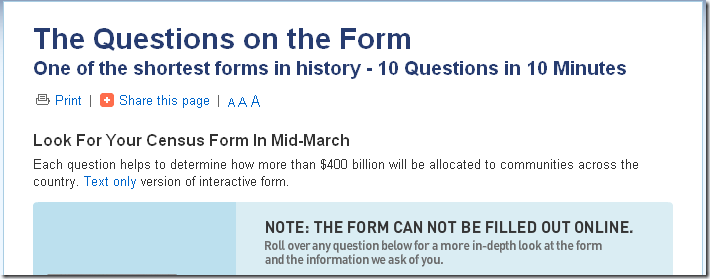So, I don’t like to brag about this kind of stuff, but I’m going to go ahead just this once. I got an email today from the IP czar! She knows my name…and she has me on a list of people who are against internet censorship. Ohhhh, maybe that’s not as good of a story as I thought. When they come for me, I won’t tell them about you, I promise.
Anyway, she did ask for a favor in the letter. She wants us all to try not just “stopping legislation” but to imagine how to make things better. In her own words
So, rather than just look at how legislation can be stopped, ask yourself: Where do we go from here? Don’t limit your opinion to what’s the wrong thing to do, ask yourself what’s right.
I’ve weighed in with a bit of my opinion over on the techdirt article about this, so I won’t rehash it here. There are at least two things going on that need fixed, and honestly I care a lot less about the legislative angle on this than I do the really important stuff. Sorry Victoria, what we had was nice. It’s not you, really, it’s me.
When I say I care less about the legislative angle, I don’t mean that I’m not terrified that some atrocity will ultimately be committed by the legislature. My general take on politicians and the political process is that they are nearly all somewhat dishonest and generally not looking out for the best interests of the public. Certainly we need to call them out each and every chance we get, and hold them to the responsibility they bear in representing the people. The issue with this, and the reason for my lack of passion about it, is that it is a never-ending and thankless task. As soon as you squash some mis-begotten spawn of the RIAA type legislation they have something worse queued up to fight over next week. It’s their job. So, in the never-ending battle to keep the hounds at bay, we have to work really hard to come up with something workable for the legislators to pontificate on. My hope is that the #open process can yield something reasonable. But this is not the real fight.
The other part is the thing that I’m actually more interested in. You may have seen the recent discussion by Cory about the war on general purpose computing. It’s spot on. The issue will not go away until politicians realize that the nature of the thing they are attempting to regulate is not severable (to use lawyer-speak). I’m not sure how we go about the process of getting people to realize this, but it is something that needs to be done.
The fundamental issue that is so difficult for many to understand is the tremendous benefit that we receive by having powerful computational tools and open networking. Society benefits greatly from the advances that are made when access to these tools are ubiquitous. I say this, unfortunately, without a lot of hard data to make the case. It makes intuitive sense. Most reasonable people would probably agree with the statement, but I don’t feel comfortable criticizing censorship proponents for not having data when I don’t have any to support my own point. Perhaps that’s where this needs to go – documenting and analyzing the net benefits of openness, as well as attempting to quantify the potential harm of losing this capability.
In addition to this shift in perspective that needs to happen on the part of regulators, there is a potentially more difficult and important change of thinking that needs to happen for this problem to truly be solved. In many ways it seems inevitable, but the change that is happening seem painfully slow by internet standards. Most of the modern day buggy whip manufacturers, just like those in the original case study, don’t realize that they are in a position of increasing irrelevance. Some have certainly gotten the message. Software is eating the world. If you took a survey of newspaper publishers, you would get some really clear sense how the economics of distribution and production have changed with the advent of widespread usage of inter-networked systems. Many people in the industries that also used to rely on wildly expensive barriers to competition are completely lost in attempting to come up with ways to stay relevant. Unfortunately, these people are well-connected and well-funded. They produce things like SOPA and push with all their might to get them passed. Seems like a waste of time, in the grand scheme of things. Once the inevitability of the changes become unavoidably obvious, hopefully the push for bad laws will stop. We can hope.








